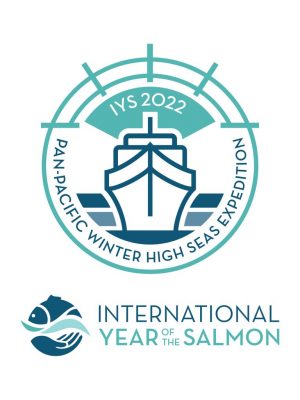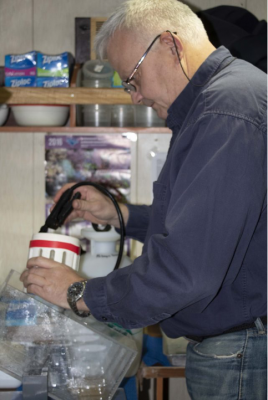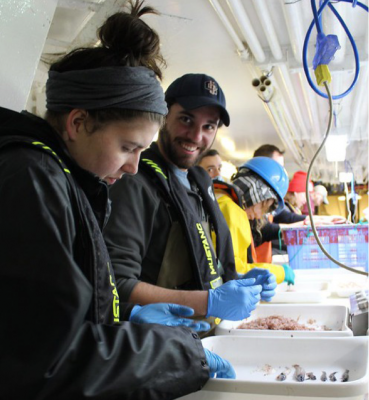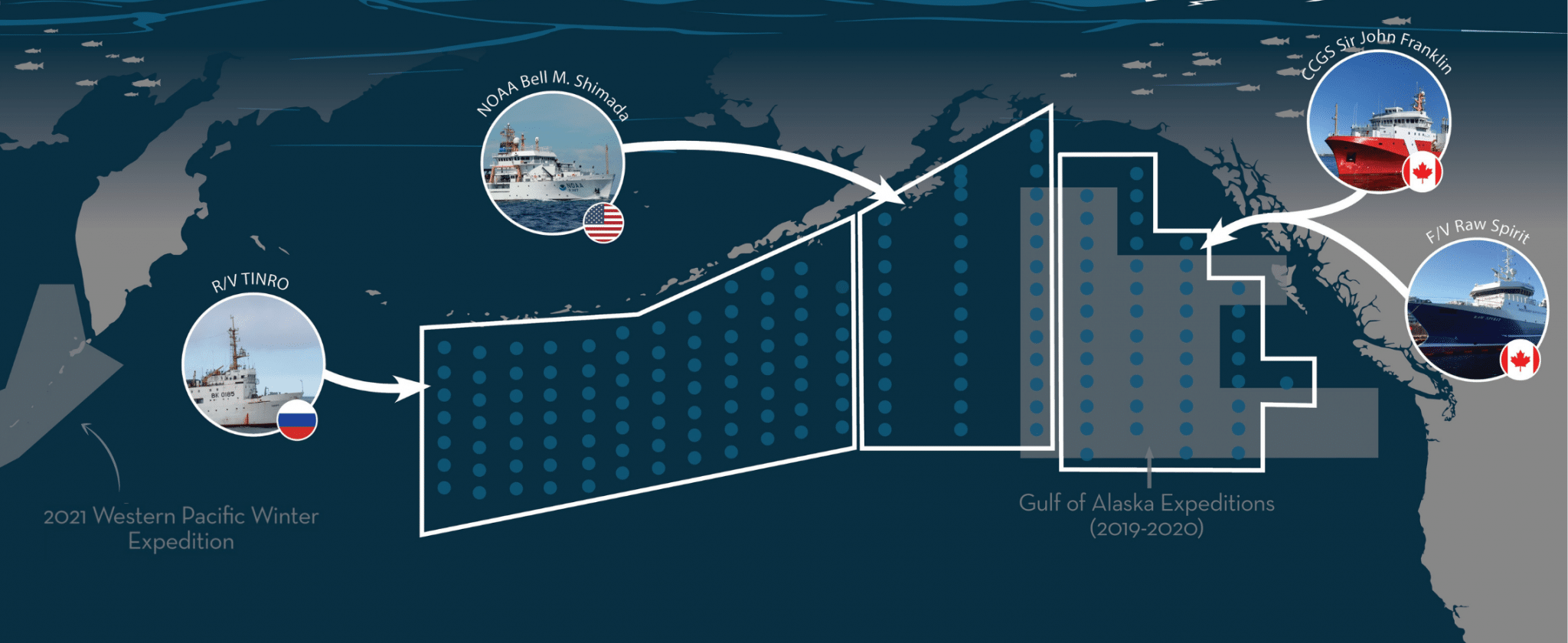
The third International Year of the Salmon Pan-Pacific Winter High Seas Expedition will continue to answer questions about a crucial salmon life stage that is poorly understood
Four research ships, on a mission to understand how salmon are handling perilous winters in the open-ocean stage of their life cycle, set sail this month. Departing from locations in Canada, the United States, as well as Vladivostok, Russia, an international team of scientists will collect samples of marine life and research physical, biological, and chemical processes in the upper ocean in what is one of the largest Pacific Ocean surveys to ever be undertaken in the winter.
The team intends to build upon discoveries made during two previous International Year of the Salmon (IYS) expeditions into the Gulf of Alaska in 2020 and 2019. This year’s expedition adds more people, more ships and more ocean coverage, and it will hopefully produce the most substantial findings of the three, according to Caroline Graham, High Seas Coordinator for the IYS, and a graduate of the IOF’s Master’s program.
“I would say all the work done over the last five or six years for IYS and these Gulf of Alaska expeditions, it’s all been building towards this,” Graham said. “It’s been a long road to bring people on board, get the funding we needed to make this happen, and we are very excited to see the results of this effort.”
The previous voyages, which also involved UBC scientists, found salmon from rivers across the North Pacific “hanging out together” in the Gulf of Alaska, and detected the DNA of potential salmon predators such as the salmon shark, said Graham.
Scientists aboard this year’s expedition ships will tackle different research areas, including physical oceanography, genomics, and the food web, on a journey that spans the western North Pacific, all the way to coast of Canada and the U.S., and into the high seas of the Gulf of Alaska.

Chief Scientist Dr. Evgeny Pakhomov boards 2019 IYS research ship
Roughly 80 to 90 per cent of salmon die as they journey from lakes and rivers into the ocean. A large majority of the surviving 10 per cent perish in the high seas, according to Pakhomov, but scientists don’t know what exactly is killing them.

Dr. Evgeny Pakhomov washes plankton samples during the 2019 IYS expedition ©Chrys Neville
“We’re trying to understand where this mortality happens and also what happens. Is it related to predation? Is it challenges surviving the first winter?” Pakhomov said. “Where do they forage? What do they eat? Do they travel individually, or in schools? Do they have enough food? Do they compete with each other for food? Where are certain populations going? This provides an opportunity to answer these questions, to open this black box and see what is inside.”
Pakhomov, whose main interest is zooplankton and food webs, will board the Russian ship R/V TINRO on Feb. 21 at Dutch Harbor, Alaska and spend the next three weeks working day and night to collect, process and analyze samples caught in the ship’s trawls. He will be relieved by UBC postdoc Dr. Elliott Price, and PhD student Jacob Lerner, who will stay aboard the TINRO until its visit to Dutch Harbor on April 8 before returning to Vladivostok, Russia on Apr. 24.
“This expedition is a different beast,” said Lerner, who had been aboard the 2020 expedition. “The North Pacific in March, the intensity of these cruises, the amount of people involved, the amount of international collaboration involved — this is a step above in terms of what we’re trying to accomplish.”

IOF’s Natalie Mahara and Jacob Lerner checking samples on the Gulf of Alaska 2020 expedition. ©Svetlana Esenkulova
“It’s all fascinating, and I can’t wait to see it come together,” Lerner said. “I don’t want to speculate too hard, but I think we’re going to encounter some very important stocks of salmon. It will be interesting to see how full their stomachs are, how healthy they are, and to learn what the trophic structure of this ecosystem looks like.”
Also taking part in the voyage are postdoctoral fellows Dr. Genyffer Troina, who will be on the Shimada (US vessel), and Dr. Anna McLaskey, who will be on the Franklin (Canadian vessel).
Pakhomov said that, for him, the most important parts of the expedition are the high level of international collaboration and the opportunity to train a new generation of ocean scientists
“It is nearly impossible for one country both logistically and financially to achieve such geographical coverage and the international collaboration is a solution. The more we show we can collaborate between countries, the more we start sharing information which we already have and which we will be able to collect,” he said. “I would like to think this will be the first of many collaborations like this.”

Zone map for the 2022 Pan-Pacific Winter High Seas Expedition